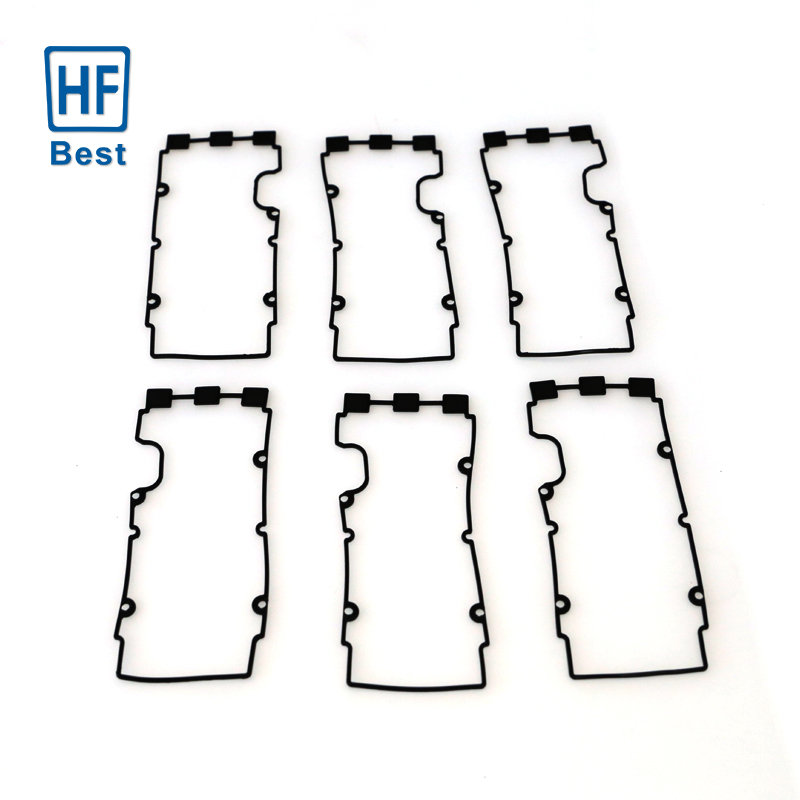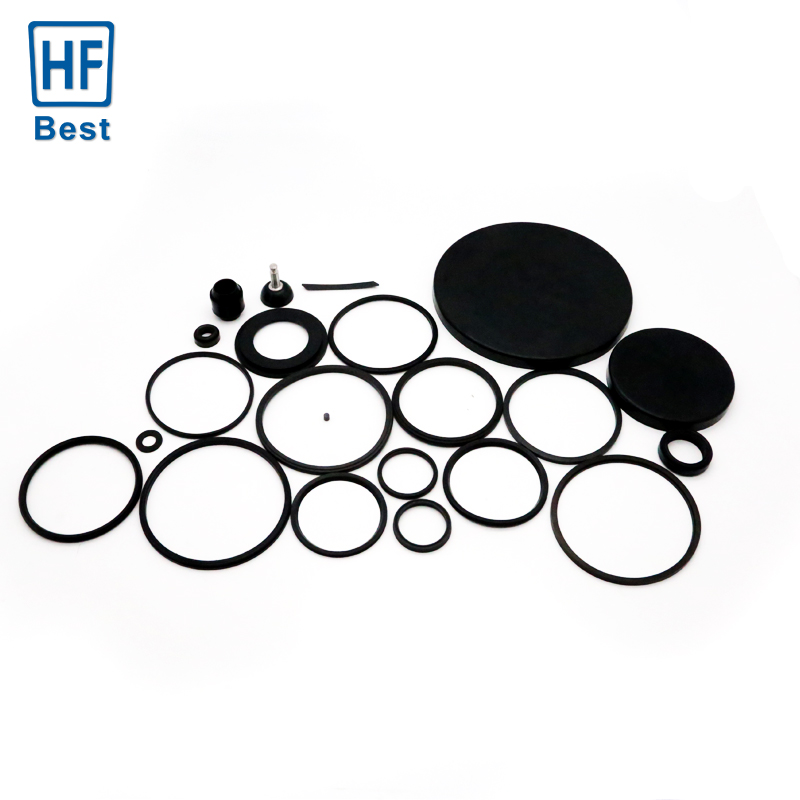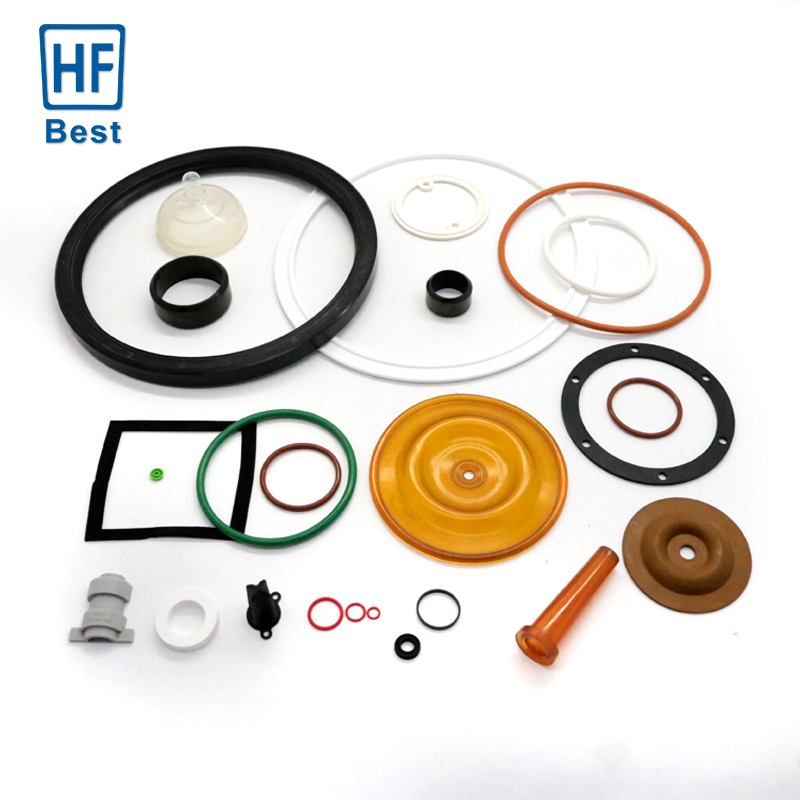News
- Industry news
Industry news
Rubber science - rubber shaped parts
Rubber shaped parts commonly used rubber material
1, fluorine rubber
With high temperature resistance, can be used in -30℃-+250℃ environment, strong oxidizer resistance, oil resistance, acid and alkali resistance. Usually used for high temperature, high vacuum and high.
2, fluorine rubber
Pressure environment, suitable for oil environment. Fluororubbers are widely used in petroleum, chemical and other sectors because of their excellent properties.
3. Silicone rubber
It has outstanding high and low temperature resistance, maintains good flexibility in the temperature range of -70 ° C -+260 ° C, and has the advantages of ozone resistance, weather aging resistance, and is suitable for sealing gaskets in thermal machinery. Thermal insulation, insulation products and medical rubber products can be made without any toxicity.
4, Ding Qing rubber
It has excellent oil resistance and aromatic solvent properties, but it is not resistant to media such as ester and chlorinated sunny, so the oil-resistant sealing products are mainly made of butyl sunny rubber.
5. Neoprene
It has good resistance to oil, solvent and chemical media, and is characterized by excellent resistance to weathering and ozone aging. In the production, neoprene rubber is usually used to make doors and Windows sealing strips and diaphragms and general vacuum sealing products.
6. Epdm
With good temperature resistance, climate aging and ozone aging properties, usually doors and Windows seals, the most widely used in the automotive industry.
7. Ptfe
Polytetrafluorocomposite gasket is a new sealing material made of polytetrafluoroethylene and high-quality all-formed rubber, using a special production process. It integrates the excellent characteristics of polytetrafluoroethylene and rubber, making the product have excellent corrosion resistance, high temperature resistance, non-toxic, anti-viscosity, and good elasticity and sealing.

Special-shaped rubber parts technology
1. Mold making
First of all, we need to produce a set of special-shaped rubber parts molds, design the molds according to product drawings and requirements, and then process them into prototypes, and then go to press and go to press. Finally, the mold is formed.
2. Selection of rubber material
According to product requirements, environmental requirements and other factors, select the appropriate rubber material to ensure that its physical properties, chemical properties and other aspects of the requirements.
3. Preparation of rubber material
The selected rubber material is mixed and processed to make it a rubber material with good plasticity.
Step 4 Form
The prefabricated rubber material is put into the mold for hot pressing or cold extrusion molding.
5. Post-processing
After forming, the special-shaped rubber parts need to be deburring, grinding, gluing and other treatment to make its surface smooth and meet the requirements of the product.
6. Testing and packaging
The shaped rubber parts are inspected for quality, such as appearance inspection, size measurement, physical property testing, etc., and then packaged to ensure the quality of the product and the accuracy of the size.
Guangzhou Best Rubber & Plastic Co., Ltd. has more than 20 years of customized processing experience of rubber shaped parts, with more than 2,000 square meters of physical processing factory, but also has professional production and processing equipment, as well as professional design team, can bring customers satisfactory products and services.

Advantages of shaped rubber parts
1, the special-shaped rubber parts have the characteristics of good flexibility and strong tensile resistance, which can better elastic deformation and meet the requirements of most engineering design.
2, special-shaped rubber parts have good wear resistance, good heat resistance, good corrosion resistance, can better withstand the external scraping, heat loss, corrosion effect, so that it is durable.
3, shaped rubber parts have a strong anti-oxidation, anti-aging properties, internal molecular structure stability is strong, not easy to be affected by external oxidation, so that it can be used for a long time.
4, special-shaped rubber parts have good impact resistance, and its elastic deformation effectively absorbs the external impact force and reduces the impact on the structure.
5, special-shaped rubber parts have good insulation properties, can effectively block external electromagnetic radiation, reduce external interference, make its structure more stable.

How to distinguish the advantages and disadvantages of rubber shaped parts
1, resistance to media weight gain experiment
Samples can be taken from the finished product, soaked in one or several selected media, weighed after a certain temperature time, and the type of material can be inferred according to the rate of change of weight and hardness. For example, soaking in 100 degree oil for 24 hours, NBR, fluorine glue, ECO, CR quality and hardness change rate is very small, while NR, EPDM, SBR weight more than double and hardness change greatly, volume expansion is obvious.
2. Hot air aging experiment
Take a sample from the finished product, put it in the aging box, and observe the phenomenon after aging. Can be graded aging gradually heating up.
3. Combustion method
Take a small sample in the air. Observe the phenomenon. In general, fluorine glue, CR, CSM from the fire breath, even if the fire is much smaller than the general NR, EPDM. A closer look at the state of combustion, color, and smell will also give us a lot of information.
4. Measure specific gravity
Use an electronic scale or analytical balance, to 0.01 grams, plus a glass of water, a hair can be. In general, the fluorine adhesive ratio is more than 1.8, and the CR ECO is also more than 1.3, which can be considered as these adhesives.
5. Low temperature method
Take a sample from the finished product and create a suitable low temperature environment with dry ice and alcohol. Soak the sample in a low temperature environment for 2-5 minutes, and feel the degree of hardness at the selected temperature. For example, at -40 degrees, the same high temperature and oil resistance is very good compared with fluorine rubber, silicone is relatively soft.






